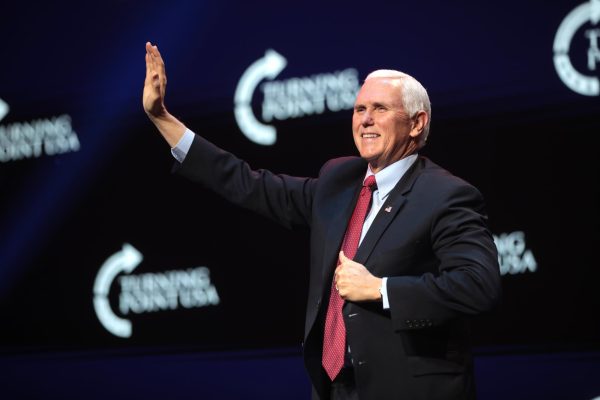OPINION: Reboots are fine, but they need to advance the story in a new way and have a bit of originality
Everyone has a beloved franchise or series that they cherish deeply. Whether it be for the story that is being told or the characters involved, we find ourselves fully invested in the world that is created. But what happens when a series is rebooted? Everything that was built up to that point, every plot thread, every character and every piece of continuity is shelved away and discontinued, unless the prior entry had time to tie up loose ends.
Since the beginning of the 21st century, we have seen Hollywood put out countless reboots and remakes of iconic franchises. Revered characters such as Batman, James Bond, Spider-Man, Sabrina Spellman (the Teenage Witch) and Hellboy are among the many to be rebooted over the past decade. The 2020s already has its own share of upcoming reboots that include “The Batman” (2022), “Bel-Air,” Amazon’s “Mr. & Mrs Smith,” Hulu’s “Hellraiser” and Disney+’s “Cheaper By The Dozen.” Reboots can be a nuisance as they appear so frequently, and it always seems that they will inevitably dishonor or ruin the greatness of their predecessors.
However, if we were to look at how some reboots wound up being successful in comparison to more lackluster ones, then a reboot might not seem so bad in hindsight. A reboot just needs to be timely, have a good enough reason to exist and advance the original story in a refreshing way.
It is often easy to mistake a reboot for a remake, but there is a clear distinction between the two. A reboot gets rid of what came before and establishes a new continuity with minimal ties to what was previously created. For instance, “Casino Royale” (2006) revamps the James Bond character as a novice agent in a grounded post-9/11 espionage setting that contrasts with the previous films, which features more adventurous and fantastical elements as Bond was previously depicted with less grittiness. Though the character receives a modern update, he more closely resembles creator Ian Fleming’s dark characterization from the novels. Reboots allow for reinventions of characters or storylines that can easily improve over what came before. Most reboots act as a platform for jumpstarting a new series of entries for franchises, as “Casino Royale” (2006) did for Daniel Craig’s Bond or as “Batman Begins” did for Christopher Nolan’s Dark Knight Trilogy.
When we look at remakes, we see a recreation of the original film or source material that carries the same premise and story beats, but they are updated in some way to differentiate themselves from their inspiration. “Robocop” (2014), a remake of Paul Verhoeven’s 1987 film of the same name, modernizes the story of the original and attempts to add layers of depth to the main character this time around. Remakes often face greater criticism than reboots as it can be said that they retread old ground and come under scrutiny when compared to the original.
While a reboot can give creators a clean slate to go in new and exciting directions, the odds of a reboot being better than the original seems rare nowadays. According to Rotten Tomatoes writer Mark Hofmeyer, a 2019 study found that “only 40 remakes and reboots since 1978 have a higher tomatometer score than the original film.” But also, “reboots have higher tomato averages than remakes.” For a reboot comparison, “The Amazing Spider-Man” (2012) currently has a 72% Tomatometer score whereas “Spider-Man” (2002) holds 90% and “Spider-Man: Homecoming” is at 92%. Regarding remakes, “Robocop” (2014) has a “Rotten” Tomatometer rating at 42% while the original film currently sits at 90%. While this data gives off the idea that reboots are a wasted effort, reboots should not be thrown out the window altogether.
There can be situations behind-the-scenes, or criticism, that often necessitates the need for a reboot. If we take a look at “Batman Begins,” and look back at the prior Batman film “Batman & Robin” (1997), it is obvious that the Batman franchise was in need of a revamp at the time. The 1997 film is notorious for overindulging in campiness, outlandish costume design and cheesy one-liners that contribute to its status as one of the worst Batman films ever made. After the film’s negative reception, plans for a sequel were shelved as director Joel Schumacher and star George Clooney exited the franchise. Hiring Christopher Nolan for “Batman Begins” proved to be exactly what the Batman films needed to continue thriving. Nolan and co-screenwriter David S. Goyer brought the character back to his darker roots and crafted a new story that followed the character’s origins and placed him in a gritty real-world setting, which was a far cry from what had been done before. Nolan’s take on the character set a new standard for what studios would demand from franchise reboots. Films like “Man of Steel,” “The Amazing Spider-Man” and “Fantastic Four” (2015) attempt to utilize the dark and gritty reboot formula, but with lesser success as the dark tones do not suit the respective characters. Reboots can be great, but a problem lies in relying on the templates of other franchises instead of more originality.
A reboot can be great when it makes a dynamic change in a franchise’s status quo and offers us something we have not seen before. Although Tom Holland’s Spider-Man iteration debuted in “Captain America: Civil War,” his solo outing “Homecoming” is a change of pace compared to the previous films. For the first time, we see Spider-Man being part of a shared universe and in a high school setting. And rather than being an origin film like the previous debuts, the film does not retread most of what we know about the character and shows us a somewhat established hero. “Homecoming” delves deeper into the Spider-Man mythos for inspiration and updates the style of the character’s earlier high school stories. “Homecoming” is a prime example of a reboot that advances the story; it updates the character to brand new circumstances and it respects the style of the character without forcing unnecessary changes.
Reboots can be tiresome, especially as we approach the second Batman recasting over the past decade, but they can also lead to the most invigorating visions. It is true that movie studios and screenwriters should focus on more original ideas, but movie reboots are not something that should be dismissed immediately. Reboots such as “Batman Begins,” “Spider-Man: Homecoming,” and “Rise of the Planet of the Apes” show us that reboots can be the best thing for a franchise when done correctly. Instead of viewing each reboot with dismay once they come to our attention, we can view it with curiosity. If we ever find ourselves disappointed or unimpressed by a reboot, then we can always go back to the original.












